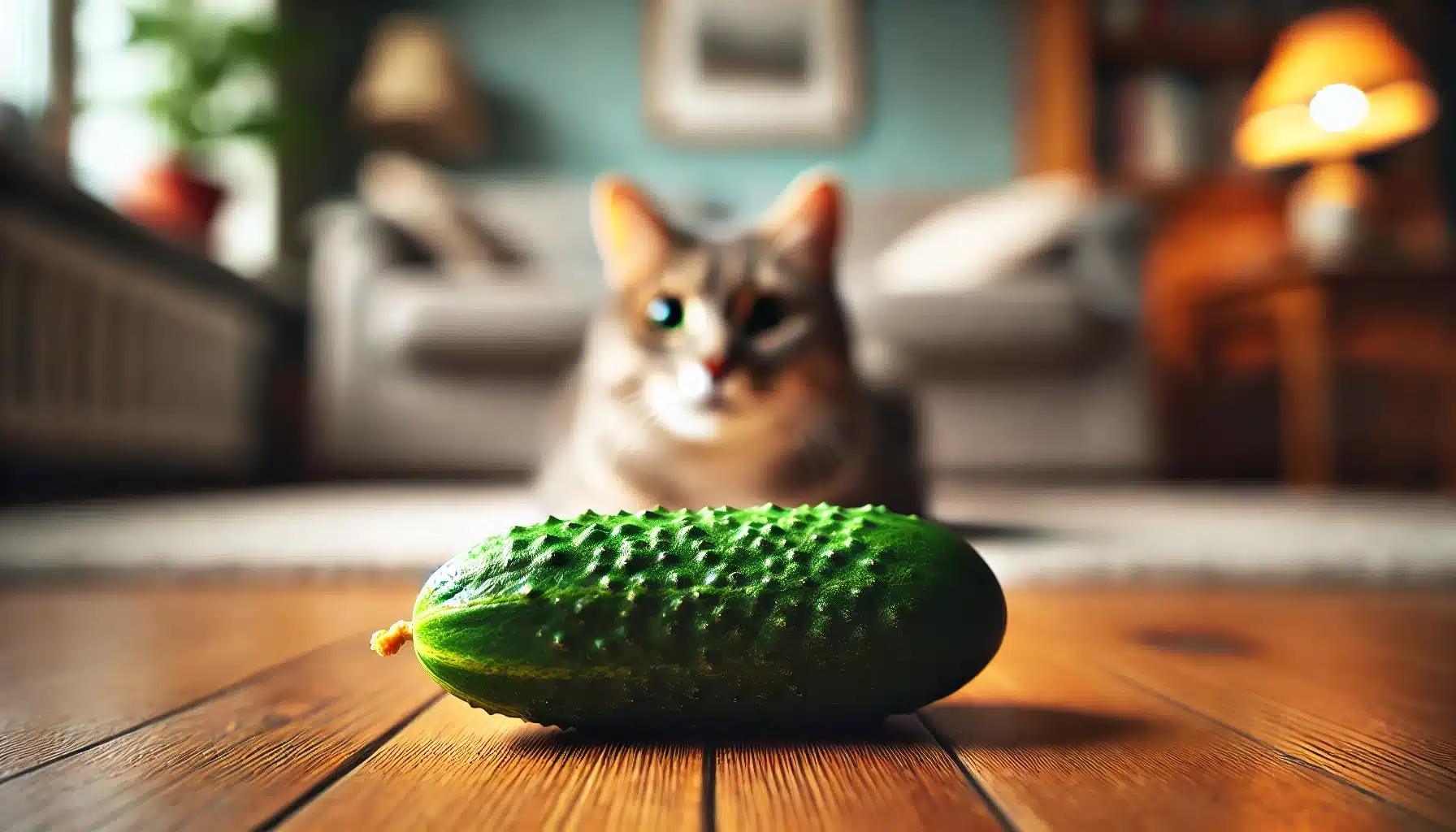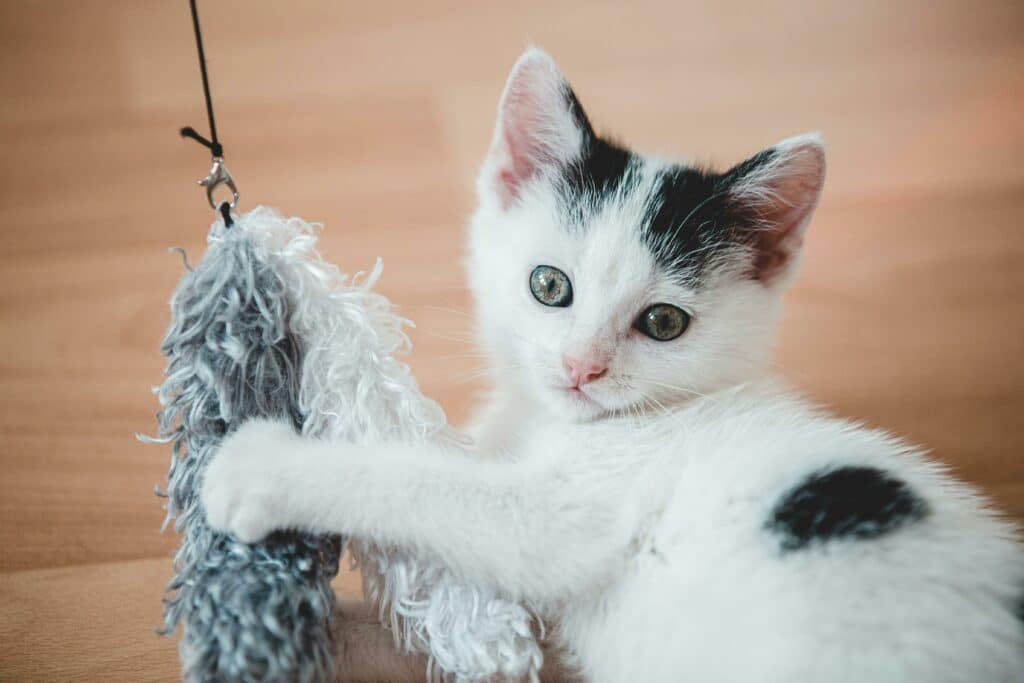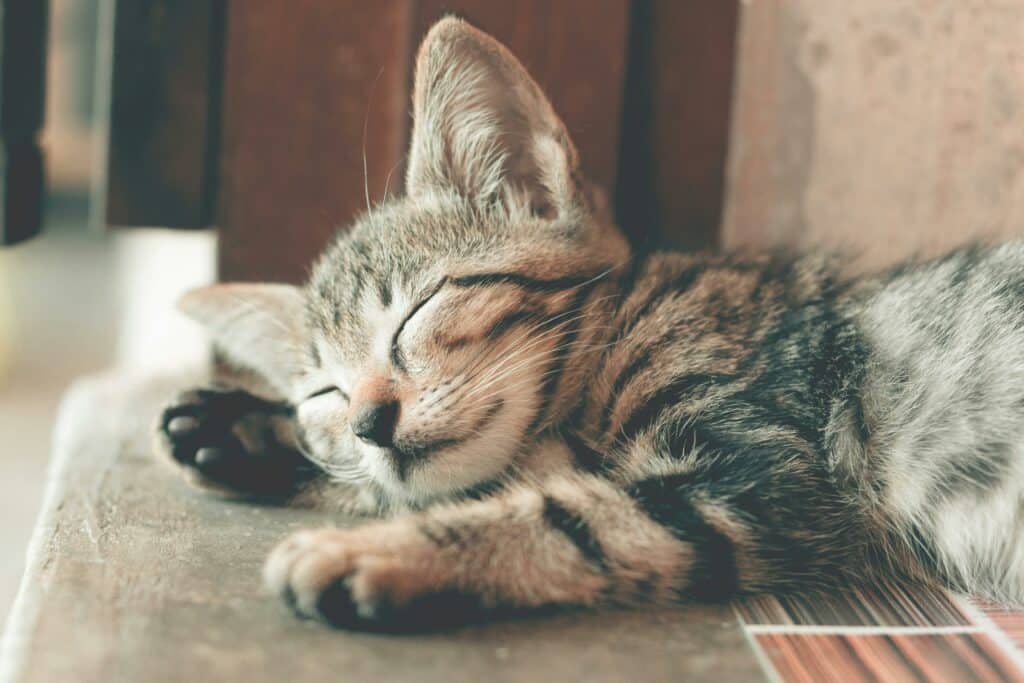
You’ve likely stumbled across viral videos showing cats springing up in alarm at the sight of cucumbers placed stealthily behind them. This reaction, both startling and hilarious, has puzzled pet owners and intrigued psychologists. But why are cats scared of cucumbers, and is this a harmless prank or a potentially harmful one? Let’s dive into the science behind it and explore the reasons why cats react so strongly to these vegetables.
The Startle Reflex: Cats’ Survival Instincts in Action
Cats are highly instinctual creatures with strong survival mechanisms. One of the most well-known reflexes they exhibit is the startle response. This refers to a quick, automatic reaction to sudden movements or unfamiliar objects. This response, which likely evolved as a defense against predators, causes the cat to quickly move away from a perceived threat.
When a cucumber is placed behind a cat without its knowledge, the cucumber’s sudden appearance can trigger the cat’s startle reflex. This is the answer to the question “Why are cats scared of cucumbers?”. The rapid, instinctual response involves the fight-or-flight mechanism, which kicks in to help the cat either face the danger or quickly escape. For indoor cats, especially, the appearance of an unfamiliar object might signal a potential threat. This is likely because they aren’t exposed to sudden stimuli in the way that outdoor animals might be.
Cats Scared of Cucumbers: Association with Predators
While cats may not explicitly recognize cucumbers as specific predators, the shape and color of a cucumber could resemble a snake or another lurking danger. Cats have a natural aversion to snakes, as even domesticated cats retain their evolutionary wariness of these creatures. The sudden, snake-like object in their personal space can cause a fearful response. It potentially mimics a scenario they might encounter in the wild. However, not all cats react to cucumbers. This indicates that this response likely varies based on a cat’s unique personality, previous experiences, and environment.
Sensory Perception and the Element of Surprise
Cats rely heavily on their sensory abilities—particularly sight and smell—to navigate their environment. A cat’s eyes are specially adapted to detect movement. When they suddenly notice an unfamiliar object close by, it can set off a cascade of sensory responses.
The surprise element is often what makes the cucumber particularly alarming. Cats can become engrossed in certain activities (like eating or playing). As such, they might not notice objects that silently appear behind them. This unexpected encounter disrupts their focus, triggering a rapid “jump” as they try to distance themselves from the unknown. Animal behavior studies have shown that unexpected introductions of objects into an animal’s space can prompt a strong response. This is due to what scientists call “neophobia,” or fear of new things, which is common among many animals, including cats.
Why Scaring Cats with Cucumbers Can Be Harmful
While these videos are often shared for laughs, intentionally scaring a cat with a cucumber can have negative effects on their mental and physical well-being. Cats are susceptible to stress, which can impact their health in various ways. Here are a few reasons why pranking cats with cucumbers might not be as harmless as it seems:
Increased Stress Levels: Cats are known to be highly sensitive animals, and consistent exposure to stressors can lead to chronic stress. For cats, prolonged stress has been linked to a weakened immune system, digestive issues, and even behavior changes.
Physical Harm from Jumping or Running Away: Cats’ instant reaction to a cucumber may lead them to jump unexpectedly. Often, they jump onto high or hard surfaces, which increases their risk of injury.
Loss of Trust: Repeatedly pranking a cat with a cucumber could cause them to associate certain areas of the home (like their feeding space) with fear. This may make them hesitant or anxious when engaging in everyday activities.

Alternatives for Cat Enrichment: Positive Play Ideas
Instead of scaring your cat, consider alternative ways to enrich their environment and stimulate their natural curiosity without causing them stress. Here are a few cat-approved enrichment ideas:
- Interactive Toys: Cats love toys that mimic prey, such as feathered wands or motorized mice that move unpredictably. These can provide them with mental stimulation and an outlet for their hunting instincts.
- Tunnels and Cat Trees: Giving your cat hiding spaces or climbing structures can allow them to explore and hide without fear.
- Food Puzzles: Many cats enjoy the challenge of working to access their food, which can be both physically and mentally stimulating.
Cats Scared of Cucumbers Prank Harmless?
While it might be tempting to test your cat’s reaction to a cucumber, it’s essential to consider the potential consequences. Not all cats will respond with the dramatic jump that’s seen in viral videos. In fact, some might ignore the cucumber altogether. However, intentionally scaring your cat for entertainment can cause long-term behavioral issues and lead to distrust. If your goal is to understand your cat’s behaviors and instincts, it’s better to observe them in natural play and exploration. This provides a safe and supportive environment.

Conclusion: Respecting Cats’ Boundaries and Instincts
The question, “why are cats scared of cucumbers,” reflects more than just a viral video trend. It taps into the fascinating instincts and reflexes that shape a cat’s behavior. While the cucumber may seem like an innocuous object, it represents an unexpected intrusion for cats. It often evokes their evolutionary defenses. Although this phenomenon can be amusing to watch, understanding the reasons behind it is vital. These reasons remind us that respecting our pets’ boundaries and comfort zones is key.
In summary, cats’ fear of cucumbers combines an instinctual startle response, sensory perception, and a potential association with predators. Refrain from using this phenomenon to create temporary entertainment. Instead, embrace positive play alternatives, which can enrich your cat’s life without causing them stress. Respecting these instinctive responses and providing supportive interactions is one of the best ways to build a healthy, happy bond with your feline friend.
References:
- People Are Scaring Their Cats with Cucumbers. They Shouldn’t. – National Geographic
- Stress and Feline Health – National Library of Medicine
- Stress in cats – International Cat Care






























